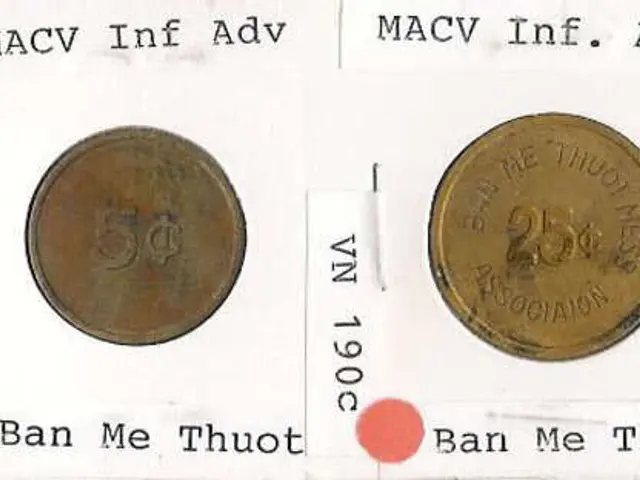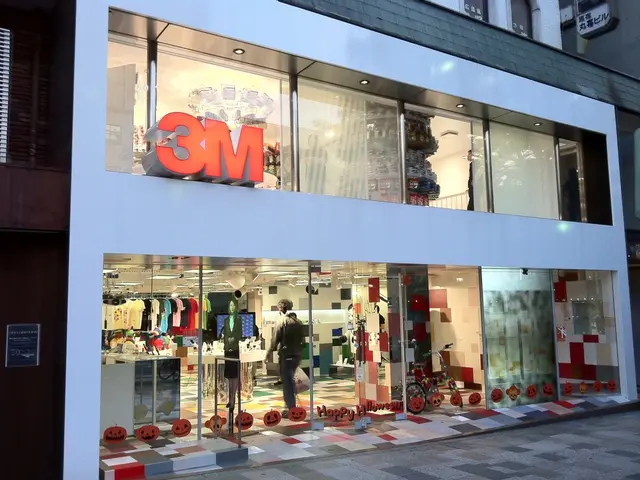Around-the-clock Expansion of Gambling Establishments in Britain Experiences Significant Growth
Increasing 24/7 UK Gaming Arcades and Mounting Gambling Addiction Concerns
The proliferation of Adult Gaming Centers (AGCs) in the UK continues unabated [Source]. These establishments, exclusively offering slot machines and bingo terminals, are typically located in city centers, easily accessible, and often open around the clock.
Gaming provider Merkur has unveiled over 100 new AGCs across the UK since 2020, with multiple locations in Peterborough operating just minutes apart. To retain customers within the arcades for extended periods, providers offer complimentary food and drinks [Source]. Simultaneously, the number of betting shop branches has decreased.
Gambling addiction experts voice concerns about the increased risk of addiction due to AGCs and call for stricter legal restrictions and more preventive measures. Recently, the UK government temporarily halted plans to relax slot machine regulations aiming to minimize gambling risks and protect vulnerable gamblers [Source].
Gaming providers are increasingly focusing on 2-pound slot machines, which allow players to stake up to 2 pounds per round and generate an average annual revenue of over 30,000 pounds per machine for operators. There are currently around 14,200 of these machines in the UK, generating a combined annual revenue of 463 million pounds [Source]. Additionally, 1-pound slots are also common in gaming arcades. In total, gaming providers earn more than 500 million pounds annually through AGCs.
Providers are also capitalizing on a loophole in UK gambling legislation by installing multiple 2-pound slot machines using tablets as bingo terminals. According to the UK Gambling Commission [Source], no more than one in four machines within an AGC can be a 2-pound slot of category B. The majority must belong to category C (1-pound slots). As tablets fall under category C, providers increase the number of allowed 2-pound slots.
Dr. Matt Gaskell, a psychologist and clinical lead of the Northern Gambling Service, has criticized the growing number of AGCs and expressed concern about a higher risk of gambling addiction. "They are designed for long gaming sessions, and that's what causes harm. The fact that their availability is increasing on high streets is extremely concerning," said Dr. Gaskell [Source].
Resistance to further AGC branches often proves unsuccessful due to the UK's legislative "aim to permit" clause. This compels authorities to approve AGCs unless they violate existing gambling regulations. Gambling providers, such as Merkur, are typically financially and legally well-equipped and tend to prevail in licensing procedures, often employing specialist legal firms for representation [Source].
Local authorities are frequently understaffed and often lose in licensing disputes. Gambling providers often appeal rejected applications and typically succeed [Source]. British politicians are advocating for gambling rules reform to control the expansion of the gaming industry and the growing number of AGCs in the UK. However, as no changes have been made to the British Gambling Act yet, further expansion and an increasing number of AGCs can be expected [Source].
What are the concerns of gambling addiction experts regarding the increasing number of Adult Gaming Centers (AGCs) and their focus on casino-games such as slots, given the growing trend of 24/7 access to casino-and-gambling in the UK?Casino-gaming providers are capitalizing on gambling trends by offering extended gaming sessions through compliments like food and drinks, focusing on high-stake 2-pound slot machines, and exploiting loopholes in UK legislation to install more of these machines, leading to a higher risk of gambling addiction.







